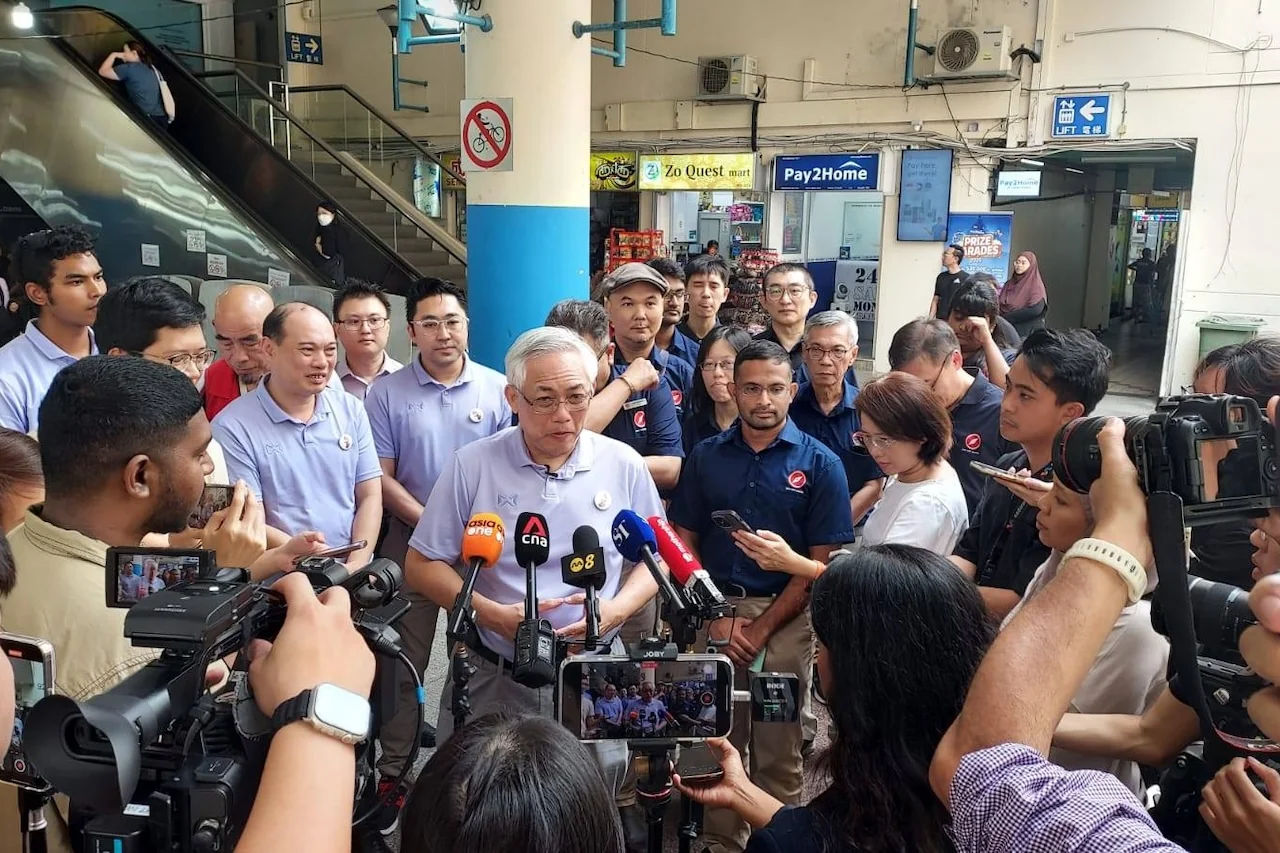PPP's Goh Meng Seng - Trump's tariffs will not last so why worry?
Even a “short” tariff is cause for worry. It’s like saying a heart attack won’t kill you because it only lasts a minute.

Goh Meng Seng’s claim—“Trump’s tariff will not last”—seems to gloss over the issues of uncertainty.
In a Facebook post published by Goh, he said: "Trump's Tariff will not last. At most, it's between China and US but even for that, it will be much moderated."
His Facebook post, while likely aimed at calming nerves and challenging the PAP’s narrative, underestimates how even a fleeting tariff can ripple through a trade-dependent economy like Singapore’s.
The problem with "It won't last"
Goh’s assertion that Trump’s tariffs are a short-term blip sounds reassuring, but it misses the forest for the trees. Uncertainty is the real poison in global trade, and Singapore, with its open economy, is particularly allergic.
Even a temporary 10% tariff on Singapore’s exports to the U.S. spooks investors and businesses. A “short” tariff could still scare off a chip fab or logistics hub - of which Singapors economy is largely based on, costing billions in future growth.
Singapore’s role as a transshipment hub means it’s hyper-sensitive to global trade flows. A brief tariff could disrupt just-in-time manufacturing or shipping schedules, leading to delays, higher costs, and lost contracts. For example, electronics, a key export, rely on tight margins—any hiccup can cascade.
If China’s economy slows due to tariffs on U.S. goods, Singapore’s exports to China (think components, chemicals) could tank.
Even a three-month tariff war could shave 1.5% off GDP, per analyst estimates, hitting jobs and wages. That’s not a “bloop”; that’s a retrenchment notice.
Goh’s point might be that Singapore’s resilience—built on diversified trade partners and government agility—can absorb a temporary shock.
Fair enough.
We’ve got FTAs with the EU, ASEAN, and Japan, and the PAP’s track record of rolling out SME aid is solid.
But resilience doesn’t mean immunity. Uncertainty breeds hesitation—businesses pause hiring, and consumers tighten belts.
Why uncertainty is the real villain
Trade isn’t just about tariffs; it’s about confidence.
Singapore thrives on predictability—stable ports, clear trade rules, and a government that doesn’t surprise you.
SMEs, which employ 70% of Singapore’s workforce, can’t plan if tariffs might vanish or double. Should they eat the 10% cost? Pivot to new markets? Lay off staff? The indecision itself is paralyzing.
Trump’s tariffs aren’t just about Singapore. If the U.S.-China trade war escalates, global demand could slump, hitting Singapore’s exports across the board.
Does Goh Meng Seng have a point?
To give Goh some credit, he’s likely trying to counter the PAP’s “sky is falling” narrative ahead of GE2025.
The PAP’s warnings—PM Wong’s “seismic change,” SM Lee’s globalization eulogy—can feel like election scare tactics.
Goh’s post taps into that skepticism, suggesting the PAP’s hyping a temporary issue to rally voters.
And he’s not entirely wrong: Singapore’s economy has weathered shocks before (SARS-08, COVID-19), and a short tariff might not trigger Armageddon. The government’s got tools—subsidies, retraining programs, trade pivots—that could soften the blow.
But Goh’s oversimplifying.
The damage—lost contracts, spooked investors, job cuts—lingers.
And if Trump’s tariffs spark a broader trade war (say, EU retaliates or China doubles down), Singapore’s caught in the crossfire. Goh’s confidence feels like a campaign soundbite, not a strategy.
Goh’s “it won’t last” is refreshingly defiant, but it’s also naive. He’s betting on resilience without acknowledging the chaos a “bloop” can unleash.

